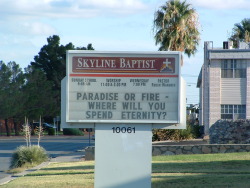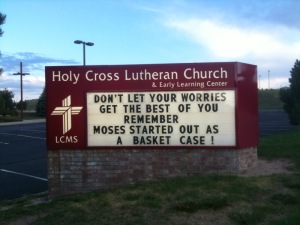Oh To Be In My 20's Again!
Author’s Note: During my morning time alone, I pulled this out of the archives of my journals on my computer. Even though it is over 5 years ago since writing it, it is timely for anyone in their 20’s or beginning their 30’s. Enjoy it; I did today!
Sunday, June 18, 2004
Isn’t amazing to see the amount of time the Church spends on developing a children’s program, a youth program, and an adult program. We are to develop the children, guide them through their teens, and teach and direct them as adults. Unfortunately the weakest link in this chain is the young adult years of the twenties.
 Where Are They Now? Where Are They Now?Second five year class reunions take on a gentler flavor. In the ten years since graduation everyone, now in their late twenties, approaching their 30’s has grooved their own path, some successfully, so it appears, and others struggling every step of the way. The dreams on graduation day, and the optimism at the first reunion are now replaced with a complacency of settling in to life. Now approaching their thirties, one has had to “find” himself, set his own pace, develop his own personal values, morals, and priorities in life. The partying, exploring, adventurous spirit of the early twenties has given way to responsibility of family and marriage, development of a career, and setting a course that will take one through the decade of their thirties as spouse, parent, and provider. Some common ground is being struck at this reunion: most now have experienced marriage, surprisingly some a second marriage; most have started families; women pass around pictures of children instead of pictures of boyfriends like in high school; men boast of sports they are play, hunting and fishing to get away from the pressures of work, a career; some are still trying to find their way no yet ready to settle to what they see the others as having a standard mundane life. All eat, drink, and be merry, dancing away the evening vaguely reminiscing a senior prom that now seems father back in their memory. Stories are told reminiscing those days in and out of class, now slightly exaggerated, before biding farewell for five years.
Where Are They Now? Where Are They Now?Second five year class reunions take on a gentler flavor. In the ten years since graduation everyone, now in their late twenties, approaching their 30’s has grooved their own path, some successfully, so it appears, and others struggling every step of the way. The dreams on graduation day, and the optimism at the first reunion are now replaced with a complacency of settling in to life. Now approaching their thirties, one has had to “find” himself, set his own pace, develop his own personal values, morals, and priorities in life. The partying, exploring, adventurous spirit of the early twenties has given way to responsibility of family and marriage, development of a career, and setting a course that will take one through the decade of their thirties as spouse, parent, and provider. Some common ground is being struck at this reunion: most now have experienced marriage, surprisingly some a second marriage; most have started families; women pass around pictures of children instead of pictures of boyfriends like in high school; men boast of sports they are play, hunting and fishing to get away from the pressures of work, a career; some are still trying to find their way no yet ready to settle to what they see the others as having a standard mundane life. All eat, drink, and be merry, dancing away the evening vaguely reminiscing a senior prom that now seems father back in their memory. Stories are told reminiscing those days in and out of class, now slightly exaggerated, before biding farewell for five years.
This is the decade of development, setting one’s own directions, cementing one’s own morals, and owning up to personal responsibility, becoming one’s own man or women. This is the decade one likes to hang out with others, establish relationships, personal, business, or casual, some lasting a short time, others a lifetime. This is the decade where Jesus hangs out with his peers and picks them to be his disciples as he enters his early thirties. He pulls them out of their jobs, their projected careers, their political dreams, their spiritual searches and calls them to his. Men give up careers of fishing to be fishers of men. Men give up ludicrous financial careers as tax collectors to follow him. Men who are searching for answers for themselves find them in intimate times of hanging out and talking with their friend. In fact, they work on establishing relationships with each other and with him. I can see a good Jewish mother complaining, “My son had a good career in the fishing industry, only to give it up and follow this guy from Galilee while searching for himself!” or “My son, my son was doing so well financially with the government and gave up the security of that job to wander around with a gang of guys doing who knows what! What security is it there for him?”
Jesus did not pick any “old fogies” from the Sanhedrin, or even established leaders in his community, but called our those in their late twenties or early thirties to follow him, be his disciples, because he knew they were in the stage of life of cementing their own morals, having to own up to their own personal responsibilities, becoming their own man, and he had to mold them into what his Father wanted them to become. These same men who struggled, complained, debated, and fought one another when walking with Jesus were the same men who would later, with age, experience, and a new found leading by the Holy Spirit would become apostles and leaders of the Church, His Body, in the near future.
As twenty year olds, they were strongly opinionated; put foot in mouth often; boasted that they would never do a certain thing, then do it, and then have to face how to handle their mistakes and blunders; run when times were rough only to return and stand strong later; scatter separately when faced with the cross, but brought back together in unity on Pentecost; steeped in religious traditions, but freed by the lifestyle, cross, and resurrection of the one who they hung out with, Jesus Christ.
I want to encourage those in their twenties to hang out with Jesus. Hang out with other believers, disciples, and experience Jesus privately and corporately. That is what the disciples did two centuries ago, and still do today. You will have your own personal battles with Jesus as the twelve did back then, but you can also experience hanging in there with the battle of the whole group as the disciples did too back then. Allow the Holy Spirit to work with you individually, as he did with the disciples and others later like Saul, and together corporately, which he did at Pentecost. After each person deal individually with what the cross and resurrection meant to them, then they came together expecting God to do more, not knowing what that form that was to be in. Every generations Pentecost comes differently, but just as powerfully, which develops the Church for that generation. You are now going through that stage in your life now!
 I remember may experiences in my twenties, sitting in my empty living room apartment alone, having no furniture, no TV, no sound system, only one knife, fork, and spoon to my name, having to wash it if I wished to share food with someone! I remember my spiritual struggles at that time, having to face the cross and resurrection, having to face Jesus on my own. I remember not wanting to do another “religious act”, for me lifting hands just because others did, yet caught myself in the quietness of an empty room lifting my hands after being broken before Jesus. Those years cemented who I am today.
I remember may experiences in my twenties, sitting in my empty living room apartment alone, having no furniture, no TV, no sound system, only one knife, fork, and spoon to my name, having to wash it if I wished to share food with someone! I remember my spiritual struggles at that time, having to face the cross and resurrection, having to face Jesus on my own. I remember not wanting to do another “religious act”, for me lifting hands just because others did, yet caught myself in the quietness of an empty room lifting my hands after being broken before Jesus. Those years cemented who I am today.
 A Assignment
A Assignment






 5
5





 I
I




 Where Are They Now?
Where Are They Now?











 W
W